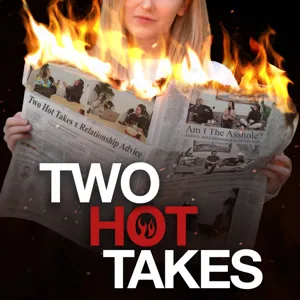Podcast Summary
Ensuring accurate Spanish information during crises: During crises, accurate Spanish info is crucial, especially for vulnerable communities. Puerto Rico's elderly population & recovering healthcare system highlight this need. Scientist Monica Fallum O'Hare bridges gap, NPR support essential.
During times of crisis, access to accurate and timely information is crucial, especially for communities where English proficiency is limited. The BBC and NPR are essential sources of information and inspiration, making us think rather than telling us what to believe. Currently, Puerto Rico, with its large elderly population and still recovering healthcare system, is particularly vulnerable to the coronavirus. The lack of timely and effective communication in Spanish during the pandemic highlights the importance of addressing this issue. Monica Fallum O'Hare, a Puerto Rican scientist, is working to bridge this gap by ensuring accurate and science-based information is readily available in Spanish to help save lives. Your support of public radio stations like NPR allows for the continuation of this vital work.
Disseminating accurate scientific info to Puerto Ricans during the pandemic: Ciencia Puerto Rico's role in providing reliable, culturally sensitive info to Puerto Ricans during crises, ensuring accurate scientific knowledge.
Ciencia Puerto Rico, a nonprofit organization, plays a crucial role in disseminating accurate scientific information about the coronavirus to Americans in Puerto Rico. This goes beyond just language barriers, as cultural understanding is also essential. Monica, who works for Ciencia Puerto Rico, shares that she has been waking up early to conduct interviews, despite the three-hour time difference between California and Puerto Rico. This podcast episode highlights the importance of such efforts in providing reliable and culturally sensitive information to communities in need. Support for this podcast comes from various sponsors, including Integrative Therapeutics, Amgen, and Apple Card. Integrative Therapeutics offers clinician-curated supplements on Amazon, Amgen is a biotechnology pioneer leading the fight against various diseases, and Apple Card provides daily cash rewards on purchases. Monica mentions that Ciencia Puerto Rico has had to adapt its responses after each emergency in Puerto Rico. This organization's work is vital, especially during crises, as it ensures that the scientific information reaching the public is both accurate and culturally relevant.
Connecting scientists with media platforms to disseminate accurate info during crises: Broadening access to scientific info during crises by connecting scientists with radio, newspapers, and other media platforms in various languages
During times of crisis, it's essential to make scientific information accessible to as many people as possible, regardless of their access to technology or language. The campaign led by this individual focuses on connecting scientists with various media platforms, including radio and newspapers, to reach a broad audience and combat misinformation. In Puerto Rico, where there has been skepticism towards government guidance due to past emergencies, Spanish language channels and radio shows have been particularly effective in disseminating accurate information. The goal is to cast a broad net and ensure that everyone, regardless of their background or location, has access to reliable information to make informed decisions.
Government transparency and trust crucial during crises, but lacked in Puerto Rico: People in Puerto Rico turned to local scientists and academics for accurate and trustworthy info due to gov't mistrust. Cultural nuances must be considered in comm strategies to effectively convey public health guidelines.
During times of crisis, transparency and trust from the government are crucial. However, in the case of Puerto Rico, a lack of transparency and mistrust in the government has made it difficult for people to rely on official information. Instead, they turn to local scientists and academics for accurate and trustworthy information, as they speak from a place of deep understanding and concern for Puerto Rico. Additionally, it's important to note that cultural differences can impact how information is understood and valued. For instance, in Puerto Rican culture, family and closeness are highly valued, making physical distancing measures particularly challenging to implement. Therefore, effective communication strategies need to take these cultural nuances into account and provide context to help people understand the importance of public health guidelines.
Inclusive communication during a crisis: Effective communication during a crisis includes making information available in native languages to foster a sense of belonging and ensure equitable access to critical information
Effective communication during a crisis, such as a pandemic, goes beyond just understanding the information. It's also about making people feel included and valued by ensuring that information is available in their native language. This not only helps bridge the gap in understanding but also fosters a sense of belonging. As the speaker, Monica, pointed out, science is universal, but language is the tool we use to communicate it. By making science accessible in non-English languages, we can help ensure that everyone has access to critical information that can make a difference in their lives. This is particularly important during a pandemic when timely access to accurate information can be a matter of life and death. So, let's remember to prioritize inclusive communication in our crisis response efforts.





